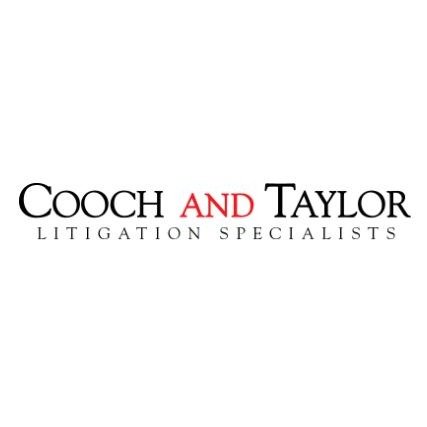Best International Trade Law Lawyers in Wilmington
Share your needs with us, get contacted by law firms.
Free. Takes 2 min.
List of the best lawyers in Wilmington, United States
About International Trade Law in Wilmington, United States
International Trade Law in Wilmington, a prominent port city with a vibrant economic landscape, plays a critical role in regulating the trade activities between the United States and other nations. This branch of law encompasses a set of rules and agreements that govern the exchange of goods, services, and intellectual property across international borders. Professionals operating in Wilmington benefit from the strategic geographical location that supports robust trade relations, thereby requiring a comprehensive understanding of international trade laws and regulations. With its bustling trade environment, legal frameworks here are designed to ensure fair trade practices, protect intellectual property rights, and promote economic growth.
Why You May Need a Lawyer
Individuals and businesses often require the expertise of an International Trade Lawyer for various reasons. A legal expert can help navigate complex trade agreements, resolve disputes, or ensure compliance with national and international regulations. Common scenarios that necessitate legal assistance include:
- Negotiating and drafting international contracts and agreements.
- Addressing issues related to import and export compliance.
- Resolving trade disputes or litigation.
- Securing necessary trade licenses and permits.
- Managing customs procedures and tariffs.
- Advising on anti-dumping and countervailing duties.
- Protecting intellectual property rights in foreign markets.
Local Laws Overview
International Trade Law in Wilmington is influenced by both federal regulations and local legislations that aim to protect and facilitate trade operations. Key aspects include:
- Adherence to U.S. Customs and Border Protection policies for import and export activities.
- Compliance with the International Trade Commission's regulations concerning tariff classifications and trade restrictions.
- Understanding the Foreign Corrupt Practices Act (FCPA) to avoid violations related to international business transactions.
- Observance of trade agreements such as the United States-Mexico-Canada Agreement (USMCA) that impact local businesses involved in cross-border trade.
- Fulfilling obligations under the Trade Promotion Authority (TPA), which streamlines legislative trade agreements.
Frequently Asked Questions
What is International Trade Law?
International Trade Law refers to the regulations and agreements that govern how countries carry out trade with each other. This includes rules on tariffs, trade agreements, and international trade dispute resolution.
Who enforces International Trade Laws in the United States?
Several bodies enforce International Trade Laws in the U.S., including U.S. Customs and Border Protection (CBP), the International Trade Administration (ITA), and the Office of the United States Trade Representative (USTR).
What is a tariff, and how does it affect trade?
A tariff is a tax imposed on imported goods. Tariffs can affect trade by making imported goods more expensive, thus affecting the price competitiveness of foreign products.
How does International Trade Law impact local businesses in Wilmington?
Local businesses in Wilmington engaged in importing or exporting goods must comply with international trade regulations that affect tariff rates, customs duties, and trade sanctions.
What is the role of the World Trade Organization (WTO) in International Trade Law?
The WTO is an international body that regulates global trade, ensuring trade flows smoothly, predictably, and freely by providing a framework for negotiating trade agreements and resolving disputes.
What is a trade agreement?
A trade agreement is a treaty or contract between two or more countries that outlines the rules for trade between them, such as reducing tariffs and trade barriers.
Can international trade laws impact service industries?
Yes, international trade laws can impact service industries, particularly in areas like banking, insurance, and telecommunications, through agreements that facilitate or restrict their access to foreign markets.
What is a “trade dispute,” and how is it resolved?
A trade dispute occurs when one country believes another country is violating trade agreements or rules. These disputes are often resolved through negotiations or by arbitration in bodies like the WTO.
What is an export license, and when is it required?
An export license is a government-issued document granting the holder permission to export specific goods to a foreign country. It's required for products that might be controlled for economic or security reasons.
Do international trade laws apply to e-commerce?
Yes, international trade laws do apply to e-commerce, particularly concerning digital goods and services, data protection, and rights related to intellectual property.
Additional Resources
For further information and guidance on International Trade Law, consider consulting the following organizations:
- U.S. Customs and Border Protection (CBP)
- International Trade Administration (ITA)
- World Trade Organization (WTO)
- Office of the United States Trade Representative (USTR)
- Delaware State Chamber of Commerce
Next Steps
If you require legal assistance in International Trade Law, consider taking the following steps:
- Identify the specific assistance you need, whether it’s compliance, dispute resolution, or drafting trade agreements.
- Research law firms in Wilmington that specialize in International Trade Law.
- Schedule consultations to discuss your case and possible legal strategies.
- Ensure the lawyer selected has experience relevant to your specific industry and trade issues.
Seeking professional legal advice will help ensure your business activities comply with all necessary regulations, thereby minimizing potential legal risks in international trade operations.
Lawzana helps you find the best lawyers and law firms in Wilmington through a curated and pre-screened list of qualified legal professionals. Our platform offers rankings and detailed profiles of attorneys and law firms, allowing you to compare based on practice areas, including International Trade Law, experience, and client feedback.
Each profile includes a description of the firm's areas of practice, client reviews, team members and partners, year of establishment, spoken languages, office locations, contact information, social media presence, and any published articles or resources. Most firms on our platform speak English and are experienced in both local and international legal matters.
Get a quote from top-rated law firms in Wilmington, United States — quickly, securely, and without unnecessary hassle.
Disclaimer:
The information provided on this page is for general informational purposes only and does not constitute legal advice. While we strive to ensure the accuracy and relevance of the content, legal information may change over time, and interpretations of the law can vary. You should always consult with a qualified legal professional for advice specific to your situation.
We disclaim all liability for actions taken or not taken based on the content of this page. If you believe any information is incorrect or outdated, please contact us, and we will review and update it where appropriate.

















